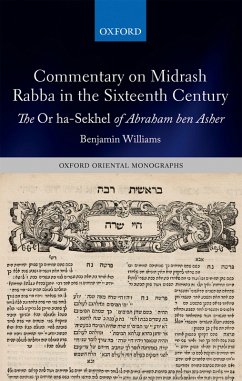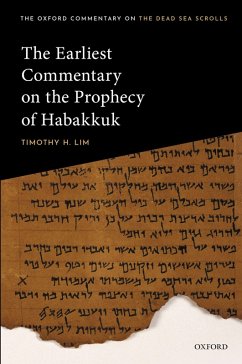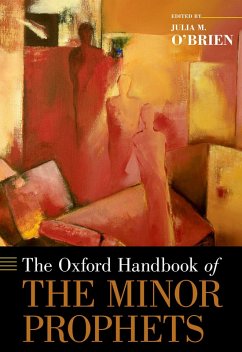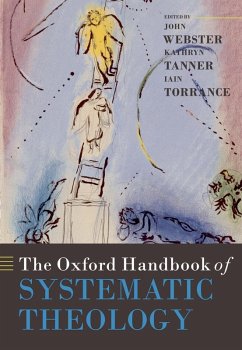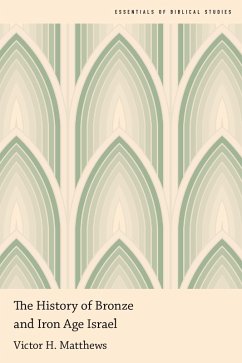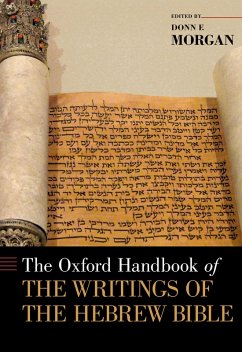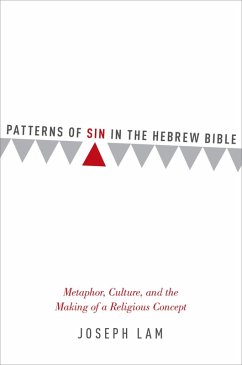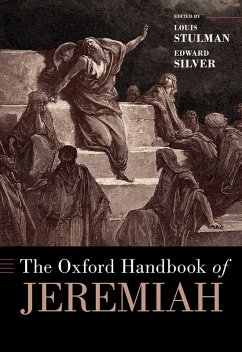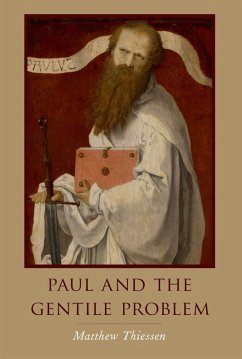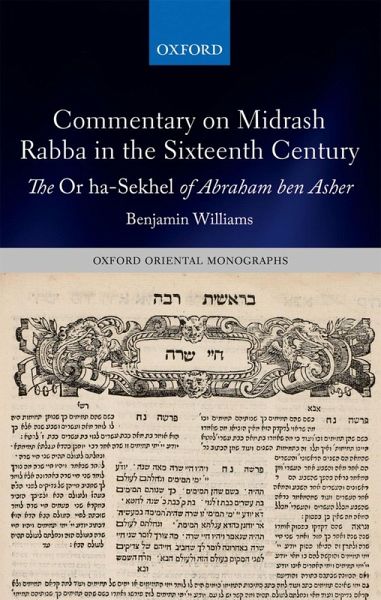
Commentary on Midrash Rabba in the Sixteenth Century (eBook, ePUB)
The Or ha-Sekhel of Abraham ben Asher
Versandkostenfrei!
Sofort per Download lieferbar
42,95 €
inkl. MwSt.
Weitere Ausgaben:

PAYBACK Punkte
21 °P sammeln!
Printed editions of midrashim, rabbinic expositions of the Bible, flooded the market for Hebrew books in the sixteenth century. First published by Iberian immigrants to the Ottoman Empire, they were later reprinted in large numbers at the famous Hebrew presses of Venice. This study seeks to shed light on who read these new books and how they did so by turning to the many commentaries on midrash written during the sixteenth century. These innovative works reveal how their authors studied rabbinic Bible interpretation and how they anticipated their readers would do so. Benjamin WIlliams focuses ...
Printed editions of midrashim, rabbinic expositions of the Bible, flooded the market for Hebrew books in the sixteenth century. First published by Iberian immigrants to the Ottoman Empire, they were later reprinted in large numbers at the famous Hebrew presses of Venice. This study seeks to shed light on who read these new books and how they did so by turning to the many commentaries on midrash written during the sixteenth century. These innovative works reveal how their authors studied rabbinic Bible interpretation and how they anticipated their readers would do so. Benjamin WIlliams focuses particularly on the work of Abraham ben Asher of Safed, the Or ha-Sekhel (Venice, 1567), an elucidation of midrash Genesis Rabba which contains both the author's own interpretations and also the commentary he mistakenly attributed to the most celebrated medieval commentator Rashi. Williams examines what is known of Abraham ben Asher's life, his place among the Jewish scholars of Safed, and the publication of his book in Venice. By analysing selected passages of his commentary, this study assesses how he shed light on rabbinic interpretation of Genesis and guided readers to correct interpretations of the words of the sages. A consideration of why Abraham ben Asher published a commentary attributed to Rashi shows that he sought to lend authority to his programme of studying midrash by including interpretations ascribed to the most famous commentator alongside his own. By analysing the production and reception of the Or ha-Sekhel, therefore, this work illuminates the popularity of midrash in the early modern period and the origins of a practice which is now well-established-the study of rabbinic Bible interpretation with the guidance of commentaries.
Dieser Download kann aus rechtlichen Gründen nur mit Rechnungsadresse in A, B, BG, CY, CZ, D, DK, EW, E, FIN, F, GR, HR, H, IRL, I, LT, L, LR, M, NL, PL, P, R, S, SLO, SK ausgeliefert werden.




